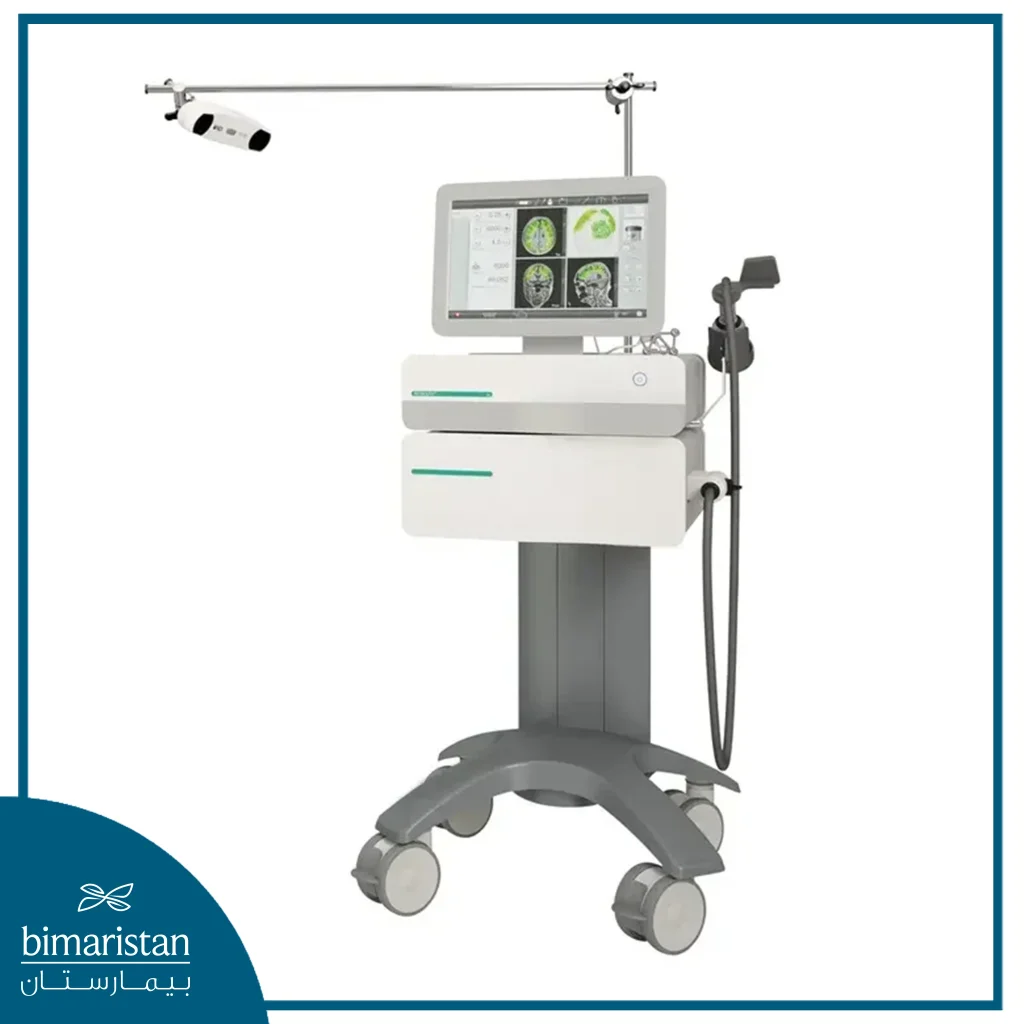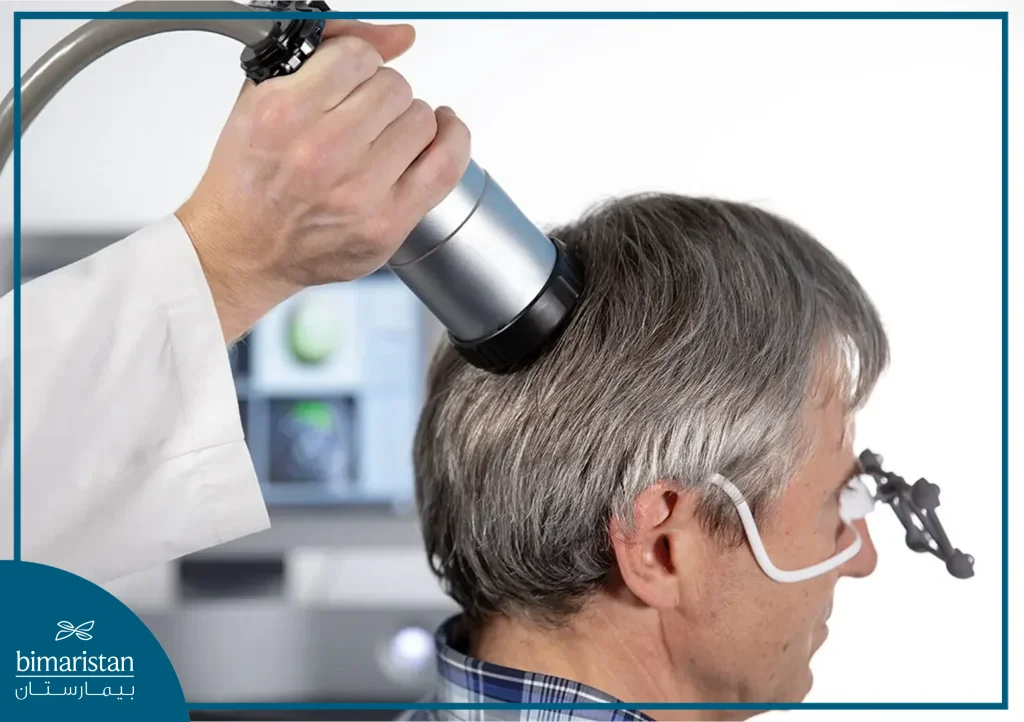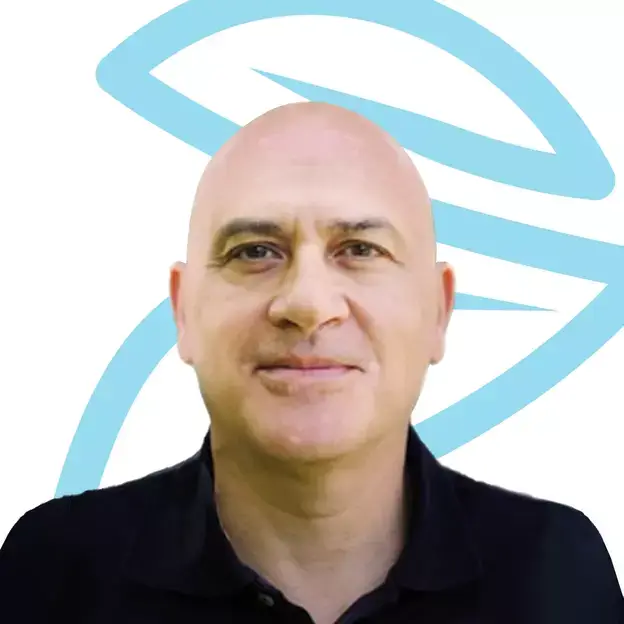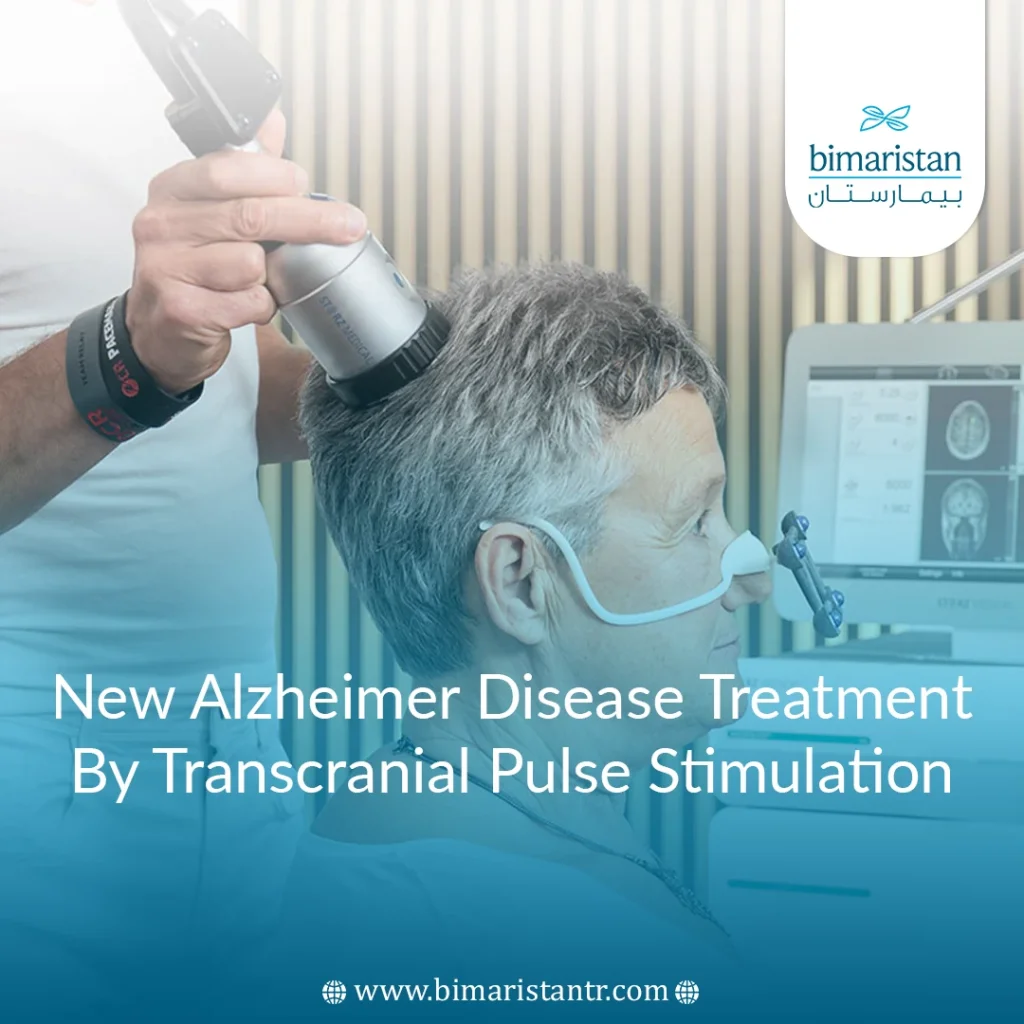Alzheimer’s disease is considered one of the most challenging and widespread neurological diseases in the world, as it greatly affects the memory and other mental functions of patients. In recent years, the medical field has witnessed remarkable developments in methods of treating this disease, and among these developments is the Transcranial Pulse Stimulation (TPS) technique, which has become considered one of the newest and most innovative treatments in the fight against Alzheimer’s.
This technology relies on magnetic pulses to stimulate specific areas of the brain, which helps improve mental functions and reduce disease symptoms. This article will discuss how this technology works, its benefits, and its applications in Alzheimer disease treatment, as well as the research and studies supporting its effectiveness.
Information about Alzheimer’s disease
Alzheimer’s Disease (AL) is one of the most common types of dementia in the elderly, as its incidence exceeds 8% after the age of 65 years and may reach 50% after the age of 85 years. The number of people with Alzheimer’s in Turkey is estimated at 600,000.
The gradual degeneration of nerve cells and nerves with age causes Alzheimer’s. Alzheimer’s patients suffer from symptoms of memory loss and many problems with thinking, language, and orientation, thus being unable to live their lives without assistance.
Alzheimer’s disease, or dementia in general, is a multiform disease that results from various causes, such as the deposition of special proteins (tau, beta-amyloid), inflammation, or lack of blood supply, among others.
Being diagnosed with Alzheimer’s disease carries many psychological impacts and changes on the lives of both patients and their families, as it is an incurable disease.
Alzheimer’s disease treatment in Turkey
Despite efforts made in the medical field to treat Alzheimer’s, it is still incurable.
However, there is significant progress in confronting this situation. Medications such as acetylcholinesterase inhibitors can slow the worsening of symptoms and keep mental functioning stable.
In addition, many accompanying treatments are currently being used to develop the mental abilities of Alzheimer’s patients and preserve these abilities for the longest possible period, thus improving the quality of life for these patients and reducing the burden on their relatives.
Treatment in Turkey has developed greatly in recent times, and its hospitals are equipped with the latest technologies and advanced devices, in addition to specialized doctors who can benefit from this rapid development in the medical field.
Among this development, scientists have developed a new tool considered a precedent in treating Alzheimer’s and Parkinson’s disease: “transcranial pulse stimulation (TPS) using the NEUROLITH device,” available only in Turkey and some other countries.

According to a new study published in the journal ADVANCED SCIENCE, the research results on TPS technology were encouraging for applying deep brain stimulation in clinical treatment.
Bimaristan Medical Center in Turkey will provide all the services the patient needs to receive the optimal treatment for Alzheimer’s, using the latest medical technologies and the best-specialized doctors.
Alzheimer disease treatment with transcranial pulse stimulation in Turkey

Transcranial Pulse Stimulation (TPS) using ultrasound is a treatment option that has been approved since 2018 to treat mild to moderate cases of Alzheimer’s disease.
This technology aims to enhance the cognitive abilities of people suffering from dementia due to Alzheimer’s and maintain these abilities for as long as possible by stimulating different brain areas.
According to a study published in the medical journal PubMed, this tool has significantly helped reduce cortical degeneration in the brains of Alzheimer’s patients, thus improving their neurological function.
TPS is a safe tool with no future complications. It is also painless, very well tolerated, and performed on an outpatient basis without the need to stay in the hospital.
Transcranial pulse stimulation has been used for medical purposes successfully since the 1990s under the term “extracorporeal shock wave therapy” to treat a variety of conditions such as nonunion, tendon and muscle pain, heart failure, and erectile dysfunction.
It is worth noting that many neurological patients, such as patients with Parkinson’s disease, multiple sclerosis, stroke, and neuralgia – in whom brain function can still be restored through functional neuronal activation – can be treated with TPS as it is the only technology that can activate deep areas of the brain in a targeted and non-invasive manner.
How does TPS work?

Transcranial pulse stimulation in Turkey is performed using a special device called NEUROLITH. This device generates ultrasound waves sent to the brain’s affected areas through the skull. These waves can reach a depth of 8 centimeters in the brain and precisely stimulate the damaged areas in the brain of the Alzheimer’s patient to treat them.
The principle of action is the mechanical stimulation of vital processes called “mechanical transduction” (transduction is signal transmission), which leads to an increase in the permeability of nerve cell membranes, stimulation of ion channels, and the release of nitrite oxide (NO), which causes vasodilation and an increase in metabolic activity and has an anti-inflammatory effect and ultimately leads to Release of angiogenic growth factors and stem cell migration and differentiation.
According to a new study, deep brain stimulation technology significantly improved the CERAD score to evaluate cognitive functions in Alzheimer’s patients by 12.8% during the first three months after treatment.
The average duration of treatment with transcranial pulse stimulation in Turkey is about 30 minutes per session, and a complete treatment usually requires 6 sessions spread over two weeks. It is a noninvasive tool that does not require surgical incisions, so the pulses penetrate the skin and skull without harming them.
What happens during a brain stimulation session?
Pulse brain stimulation sessions in Turkey are safely performed by doctors trained to use the NEUROLITH device. During the session, the patient sits in a comfortable chair and can move freely throughout treatment.
He enters the patient’s information into the device. Then the gel is placed on the patient’s head or hair (it is unnecessary to shave the patient’s head before the session) to ensure optimal transmission of impulses (the gel used here is the same gel used in regular echo imaging).
After that, the patient wears special glasses to determine the location of the head on the device, and the doctor moves the device’s handle to specific places on the patient’s head so that the doctor and patient can see the areas of the brain that the waves have reached on the screen, and this continues for 30 minutes.
In recent decades, Turkey has provided its hospitals with modern devices and technologies to keep pace with the rapid medical development worldwide. Watch the video for more details about the deep brain stimulation session used to treat Alzheimer’s disease.
Cost of Alzheimer disease treatment by transcranial pulse stimulation in Turkey
The price of an Alzheimer disease treatment course consisting of 8-10 sessions of transcranial pulse stimulation in Turkey starts from 4,000 US dollars, much lower than its price elsewhere. If one of your relatives suffers from Alzheimer’s disease, quickly contact us, and we will answer all your questions about treatment with transcranial pulse stimulation in Turkey. Book your place at Bimaristan Medical Center.
Sources:
- NeuroUp Clinic

